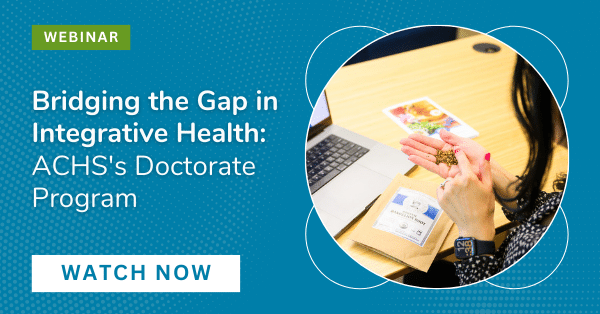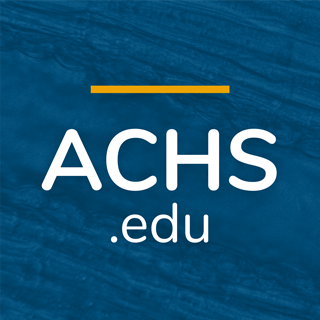Understanding your scope of practice is an important first step when embarking on any new endeavor in the healthcare sector. This might mean familiarizing yourself with licensing requirements or learning about Health Freedom states and state law exemptions that protect access to integrative health and wellness practitioners in areas where licensure does not yet exist such as aromatherapy and wellness coaching.
Practicing Integrative Health in the United States: Scope of Practice
A common question we hear is, If I have a doctorate, can I now prescribe and diagnose and claim to treat or cure similar to a licensed medical doctor? The short answer is no, only those with a medical license are trained and licensed to do this. However, it is important to note that while graduates are not licensed to diagnose or treat medical conditions, their expertise in integrative health can be a valuable complement to conventional healthcare, helping individuals achieve a balanced and holistic approach to wellness.
For the field of nutrition, it is important to know that many states have enacted laws that regulate the practice of dietetics and nutrition services. For example, some states have restrictions for using the title “Nutritionist” or “Nutrition Counselor”, while other states do not. The use of “Registered Dietitian” or “Dietitian” are restricted to those individuals who met the credentialing requirements of the American Dietetic Association. The ACHS Doctor of Science in Integrative Health does not train graduates to practice as a Registered Dietitian.
Some states are referred to as Health Freedom states. This means that the states have passed Safe Harbor exemption laws that protect consumer access to a wide range of integrative health practitioners. Even if a state is a Health Freedom state, there may still be a defined scope of practice and licensing requirements, so it is important to review the regulations carefully. You can also learn more about Health Freedom states online here.
ACHS is also a partner institution with the National Association of Nutrition Professionals (NANP). NANP’s Legislative Affairs Division publishes more information about practicing nutrition online here, including advocacy resources.
What Can You Do with an ACHS Doctorate Degree?
There are several pathways to use your ACHS Doctor of Science in Integrative Health degree. This program was designed to provide highly qualified professionals to contribute to the field of integrative health as:
- Integrative Health and Nutrition Practitioners
- Dietary Supplement Manufacturers
- Educators
- Researchers in academia or corporate sector (R&D)
- Health and wellness professionals such as those in corporations and writers, speakers, and authors
Learn more about professional pathways with this degree in our webinar, Bridging the Gap in Integrative Health: ACHS Doctorate Program.

Demonstrating Your Expertise: Professional Credentialing Opportunities with the ACHS DSc Degree
Integrative health and wellness practitioners can distinguish themselves among other professionals and demonstrate their expertise through professional credentialing. There are several credentialing opportunities for ACHS Doctor of Science in Integrative Health graduates.
Nutrition Professional Credentialing
ACHS aligns curriculum to meet industry professional standards so graduates’ have pathways for demonstrating their expertise and distinguishing themselves among other wellness practitioners with clients, employers, and other practitioners. Following are two credentialing opportunities:
National Association of Nutrition Professionals – Become Board Certified in Holistic Nutrition®
The NANP BCHN® exam is a comprehensive assessment that gives graduates the opportunity to demonstrate they meet the educational and ethical practice standards set by a professional credentialing agency in their field of expertise. Learn more about the exam online at https://nanp.org/board-certification/.
ACHS graduates of the following programs are eligible to apply to sit the NANP exam to become Board Certified in Holistic Nutrition®:
- Diploma in Holistic Health Practice
- Associate of Applied Science in Health & Wellness
- Bachelor of Science in Holistic Nutrition
- Master of Science in Health and Wellness
- Master of Science in Holistic Nutrition
- Master of Science in Integrative Health Sciences
- Doctor of Science in Integrative Health
Clinical Nutrition Certification Board (CNCB)
The CNCB provides professional training, examination and certification for health care providers. Learn more about the CNCB’s Certified Clinical Nutrition (CCN) Online Examination and how to become achieve the CCN (Certified Clinical Nutritionist) designation online at https://cncb.org/.
Important note : Some states may have specific requirements for the use of the title “Nutritionist”. Learn more about scope of practice and Title Protection online at https://nanp.org/legislative-affairs/.
ACHS graduates of the following programs meet the core education requirements for the Certified Clinical Nutritionist exam:
- Doctor of Science in Integrative Health
- Master of Science in Holistic Nutrition
- Master of Science in Health and Wellness
Graduates of the following programs meet the core education requirements to enter the CNCB’s PostGraduate Studies in Clinical Nutrition (PGSCN) online program in order to qualify to sit for the CCN exam:
Working with Insurance and Other Practice Information
Another common question is whether an ACHS graduate can bill insurance for their services. As with all healthcare professionals, whether or not one can bill insurance depends on a variety of factors such as state licensure laws and insurance plan recognition for integrative health and wellness.
If a graduate plans to be in private practice or work with an established practice of healthcare professionals to advise clients on wellness protocols to support optimal health, the parameters for billing insurance depend upon the state where you live. The ACHS DSc program will provide resources for you to explore your options, depending upon your state of residence, for your intended profession which may include a specialization such as in nutrition, aromatherapy or herbal studies.
During this program and throughout your ACHS studies, you’ll have the opportunity to connect with students with similar goals and interests and graduates to hear how they are putting their studies to use and navigating a career in integrative health and wellness. As an ACHS student, you’ll be invited to meet with our Director of Alumni & Career Services Felicia Royce as early as your first semester to start planning for your professional goals and will also have access to ACHS webinars to learn from experts about how they’re putting their education to use.
This article is for informational purposes only. Please contact ACHS Admissions at [email protected] or 800-487-8839 for additional information and to apply for admission. Graduation from any ACHS program does not confer a license to practice medicine. ACHS graduates do not claim to treat, diagnose, cure, or prescribe. Please note that professional success is achieved by a number of factors beyond education and experience, including soft skills, work ethic, integrity, and other skills that may not be developed through education and training alone. Not all graduates will achieve the career outcomes provided as examples in this article and other ACHS marketing materials. This information does not replace the need for legal advice. State laws vary greatly and change often. If you have a specific question about the laws in your state, check with your state or seek the advice of your attorney.




